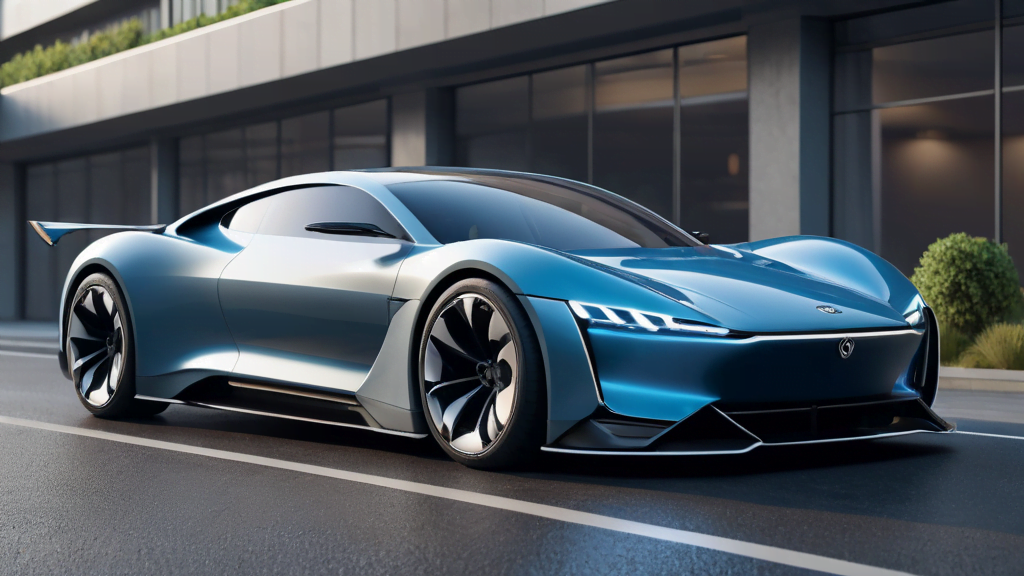

The Future of Electric Vehicles: What to Expect in the Next Decade
The automotive industry is undergoing a transformative shift, and electric vehicles (EVs) are at the forefront of this revolution. With advancements in technology, increased environmental awareness, and supportive government policies, the next decade promises significant developments in the world of EVs. Here’s what we can expect.
1. Increased Range and Efficiency
One of the biggest concerns for potential EV buyers has been range anxiety. However, with continuous improvements in battery technology, the average range of electric vehicles is set to increase significantly. Solid-state batteries, which are expected to replace the current lithium-ion batteries, will offer higher energy density, faster charging times, and longer lifespan. This will make long-distance travel in EVs more practical and convenient.
2. Expansion of Charging Infrastructure
As the adoption of EVs grows, so will the demand for a robust charging infrastructure. Governments and private companies are investing heavily in expanding charging networks, ensuring that EV owners have access to fast and reliable charging stations. Wireless charging technology, which allows vehicles to charge without physical connections, is also expected to become more prevalent, further enhancing the convenience of owning an EV.
3. Lower Costs
The cost of EVs has been a barrier for many consumers, but this is set to change. Economies of scale, advancements in manufacturing processes, and reductions in battery costs are expected to make EVs more affordable. By 2030, it is anticipated that the price of EVs will be comparable to, if not lower than, traditional internal combustion engine vehicles, making them accessible to a broader audience.
4. Government Incentives and Regulations
Governments around the world are introducing policies to encourage the adoption of electric vehicles. From tax rebates and subsidies to stricter emission regulations, these measures are designed to reduce the environmental impact of transportation. In many countries, cities are also implementing low-emission zones where only EVs are allowed, further promoting the shift away from fossil fuel-powered vehicles.
5. Autonomous Driving Technology
Electric vehicles are often seen as the ideal platform for integrating autonomous driving technology. With the development of advanced driver assistance systems (ADAS) and AI-powered navigation, fully autonomous EVs are expected to become a reality in the next decade. This will not only enhance road safety but also transform the way we think about personal transportation, potentially leading to the rise of shared mobility services.
6. Sustainable Production Practices
Sustainability is a key focus in the production of future EVs. Manufacturers are increasingly adopting eco-friendly practices, such as using recycled materials and renewable energy in their production processes. Additionally, the entire lifecycle of EV batteries, from production to recycling, is being optimized to minimize environmental impact.
7. Diverse Model Offerings
The early years of the EV market were dominated by a few models primarily targeting the luxury segment. However, the next decade will see a proliferation of diverse EV models across various segments, including compact cars, SUVs, trucks, and even commercial vehicles. This variety will cater to different consumer preferences and needs, further driving the adoption of electric vehicles.
8. Enhanced Connectivity
Future EVs will be equipped with advanced connectivity features, making them smarter and more integrated with our digital lives. From over-the-air software updates to real-time traffic and charging information, connected EVs will offer a seamless and personalized driving experience. Integration with smart home systems and other IoT devices will also become more common, enhancing the overall convenience for users.
9. Impact on the Energy Grid
The rise of EVs will have a significant impact on the energy grid. As the demand for electricity increases, there will be a greater emphasis on renewable energy sources to power these vehicles. Vehicle-to-grid (V2G) technology, which allows EVs to supply power back to the grid during peak demand, will also play a crucial role in stabilizing the energy supply and promoting the use of clean energy.
10. Global Collaboration and Innovation
The future of electric vehicles will be shaped by global collaboration and innovation. Automakers, tech companies, governments, and researchers will work together to overcome challenges and accelerate the transition to sustainable transportation. International standards for charging infrastructure, battery recycling, and autonomous driving will also emerge, facilitating a smoother and more cohesive global EV market.
Conclusion
The next decade promises exciting advancements and widespread adoption of electric vehicles. With improvements in technology, infrastructure, and affordability, EVs are set to become the norm rather than the exception. This shift will not only reduce our carbon footprint but also revolutionize the way we travel, making transportation more efficient, sustainable, and accessible for everyone. Embracing this future today will pave the way for a cleaner and greener tomorrow.
Add a comment Cancel reply
Categories
- Auto Detailing (1)
- Automobile Reviews (2)
- Automobiles (1)
- Automotive (10)
- Automotive Industry (3)
- Automotive Reviews (2)
- Automotive Trends (2)
- Car News (10)
- Car Reviews (3)
- Cars in UAE (12)
- Classic Cars (1)
- Electric Vehicles (4)
- Green Technology (2)
- UAE-CARS (60)
Recent Posts
Related posts


Best Cars for Uber & Careem Drivers in UAE – Maximize Earnings

Top 10 Car Accessories Every UAE Driver Should Have








